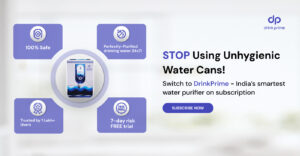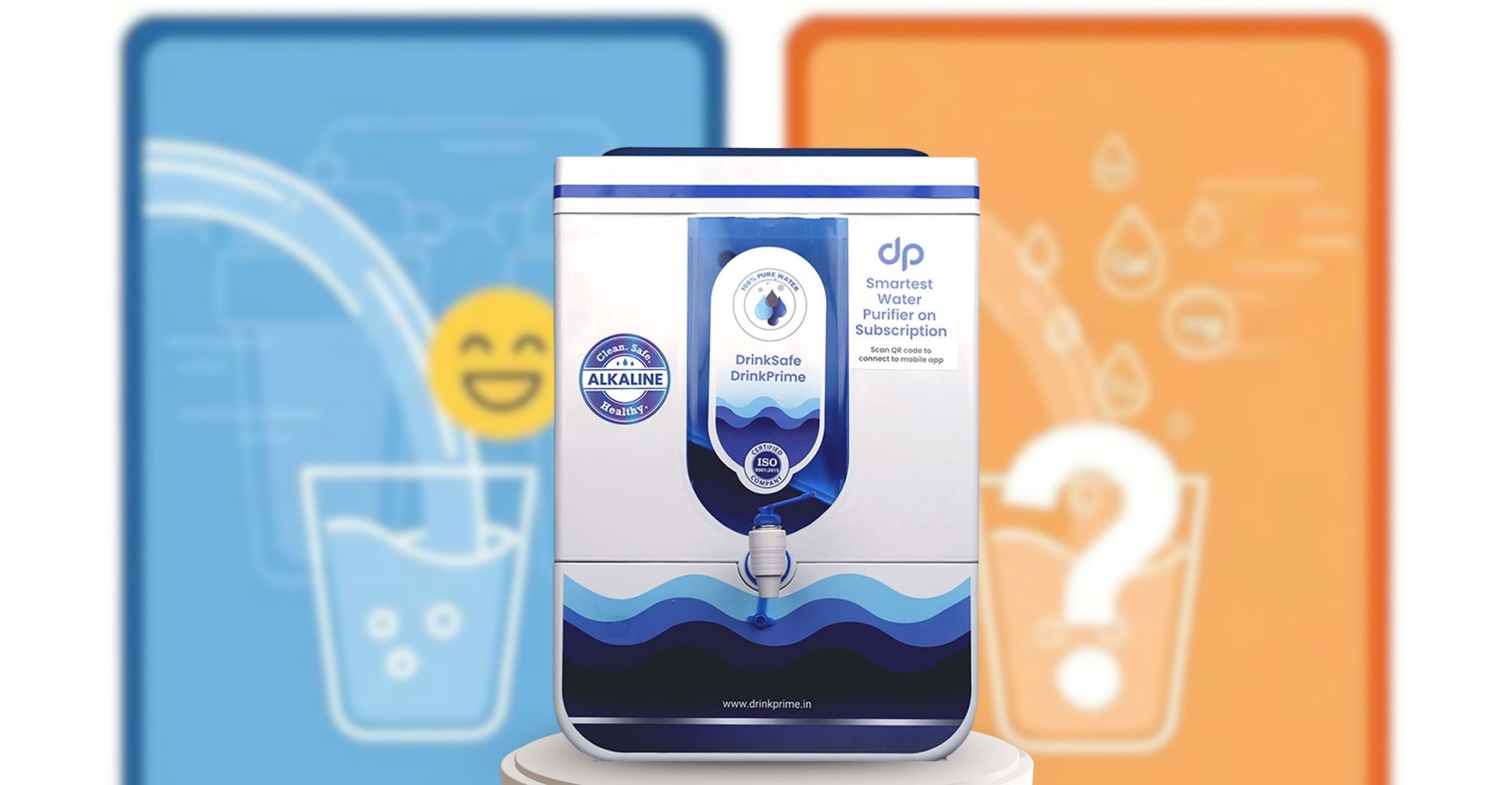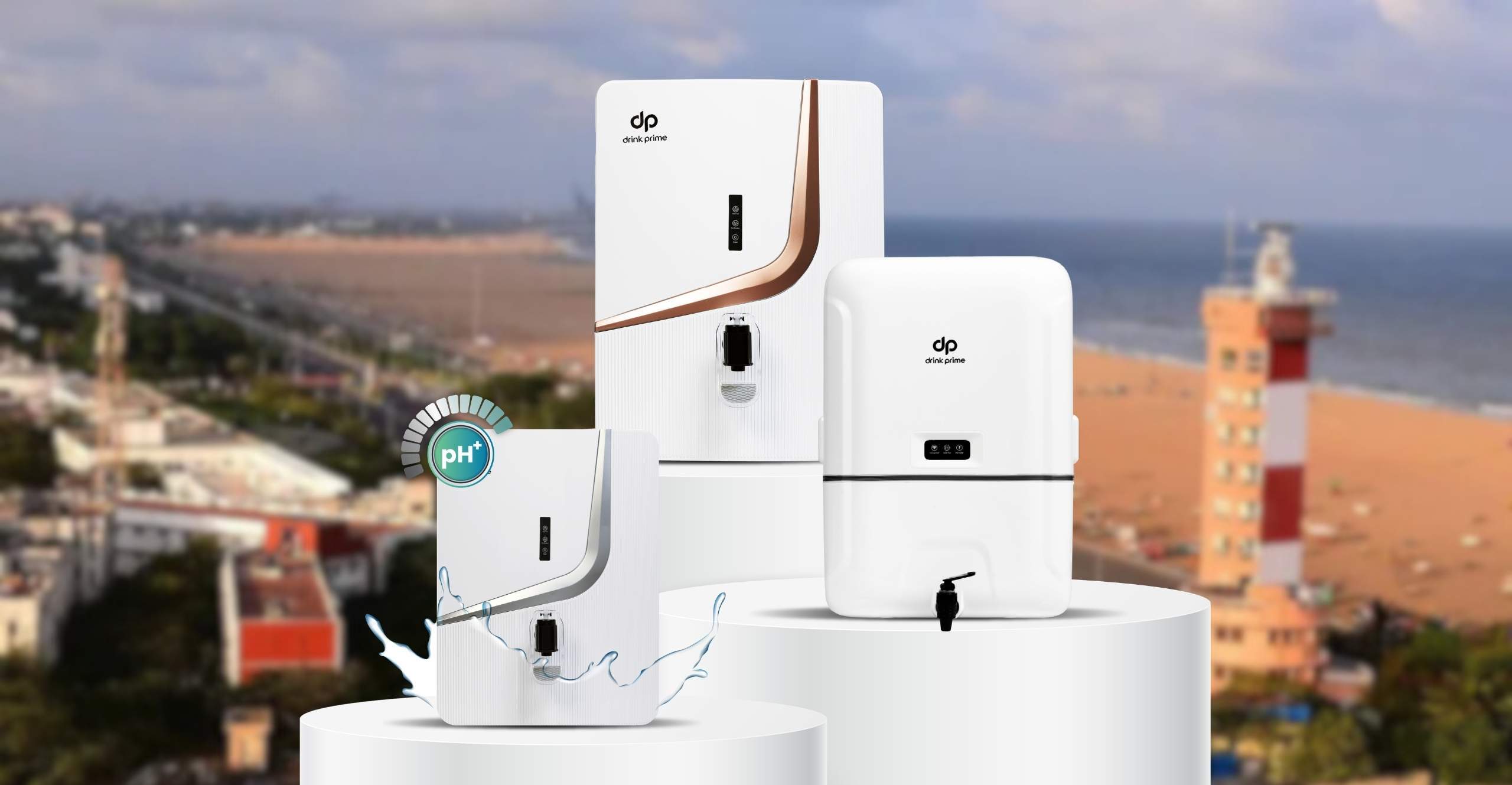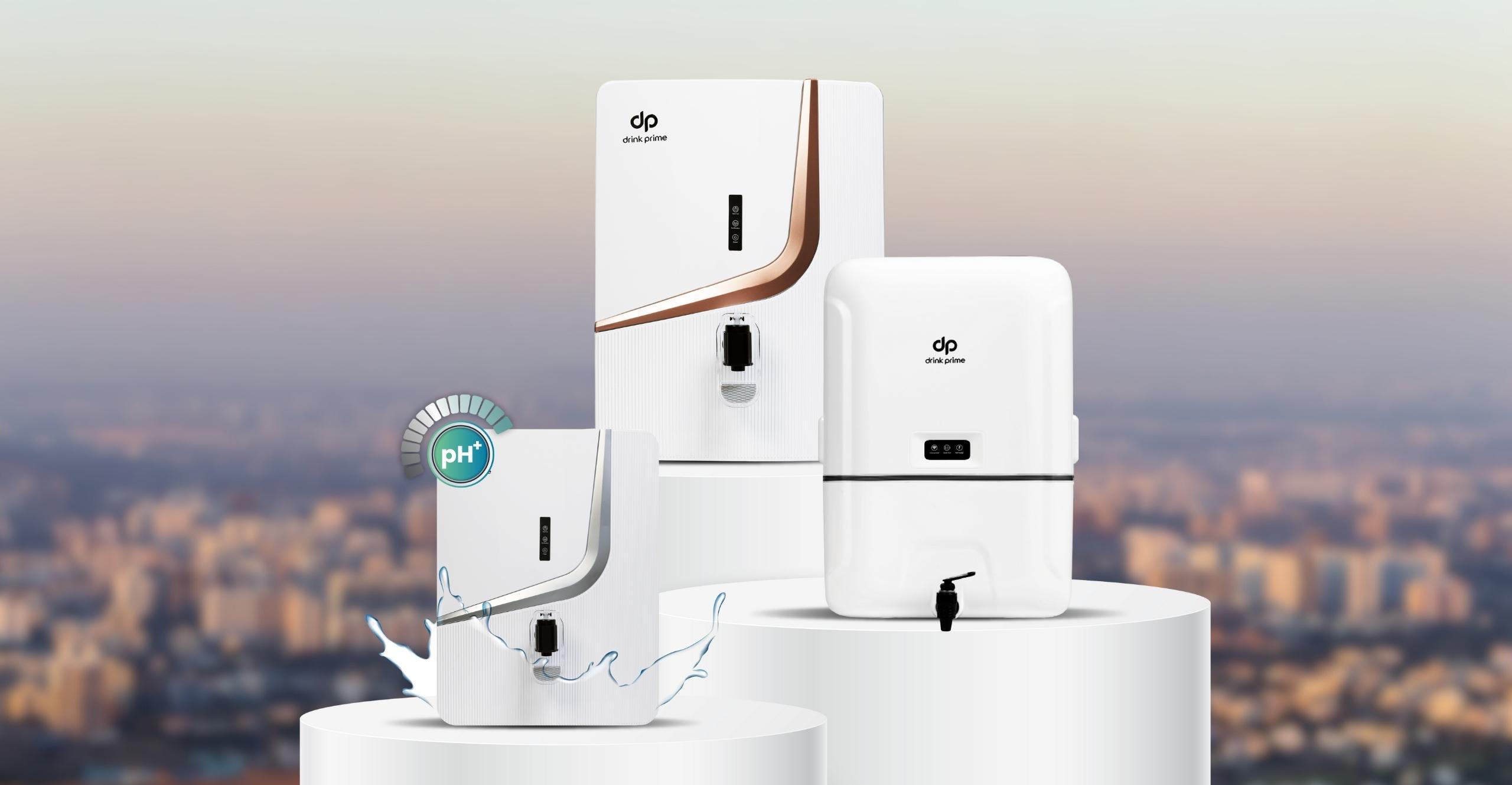Due to the increasing levels of water pollution around us today, RO water purifier has gained the status of a very useful appliance in the kitchen. It ensures that you have access to clean, and safe drinking water. But once the unit is installed, constant maintenance and servicing are required to ensure optimal functioning.
One of the main culprits which can cause problems with your RO water purifier is hard water. Hard water can cause scaling, which puts the RO membrane under extreme duress. In this blog, we will discuss what exactly constitutes hard water, how it can impact your health while also damaging your water purifier, and how you can prevent it.
What is hard water?
Water that contains a high number of mineral deposits is known as hard water. This is a naturally occurring phenomenon, where water passes through limestone or chalk which are rich in calcium, magnesium, or bicarbonates.
Sometimes there may also be iron present in a ferrous state, which when oxidized to ferrous form causes a reddish stain, mostly on washed or enamel surfaces. Water hardness is usually determined by the grains per gallon of calcium carbonate that a sample of water contains.
Temporary hard water is caused by the presence of magnesium and calcium carbonates. This can be eliminated by boiling. But there is another type of permanent hard water that contains chlorides and sulfates with soluble calcium and magnesium salts. Boiling water does not reduce the hardness and a hard water filter is the only solution.
How does hard water affect your health?
Hard water consumption is widely considered to have no negative impact on human health as such and some people even consider it healthy, due to the presence of various minerals. But recent studies have shown that consuming hard water is not completely risk-free. Large quantities of minerals in hard water pose a possible health hazard. Hard water contains high levels of magnesium and if you consistently consume it, it may lead to diarrhea and even affect your kidney functions.
Kidney stones are known to contain calcium and magnesium. Frequent consumption of these minerals via hard water may increase your chances of getting kidney stones and affect your renal function in the long term. Hard water also contributes to skin and hair issues if you frequently use it for bathing.
Excessive minerals cause skin conditions like eczema and dry patches. It can also weaken your skin’s natural pH balance, leaving you more vulnerable to bacteria and infection. Hair falls and itchy scalp conditions are also common occurrences if you wash your hair frequently with hard water.
Does hard water damage the RO membrane of your purifier?
Hard water, other than being harmful to your health, also affects the health of your RO purifier. The minerals present in hard water, especially calcium, stick and bind to surfaces and over time cause scaling. This blocks the membrane’s pores, making it hard for filtration to happen effectively. Over time, the efficiency of the membrane will be compromised leading to lower quality of water being produced and this may also lead to other parts of the purifier getting damaged in the process.
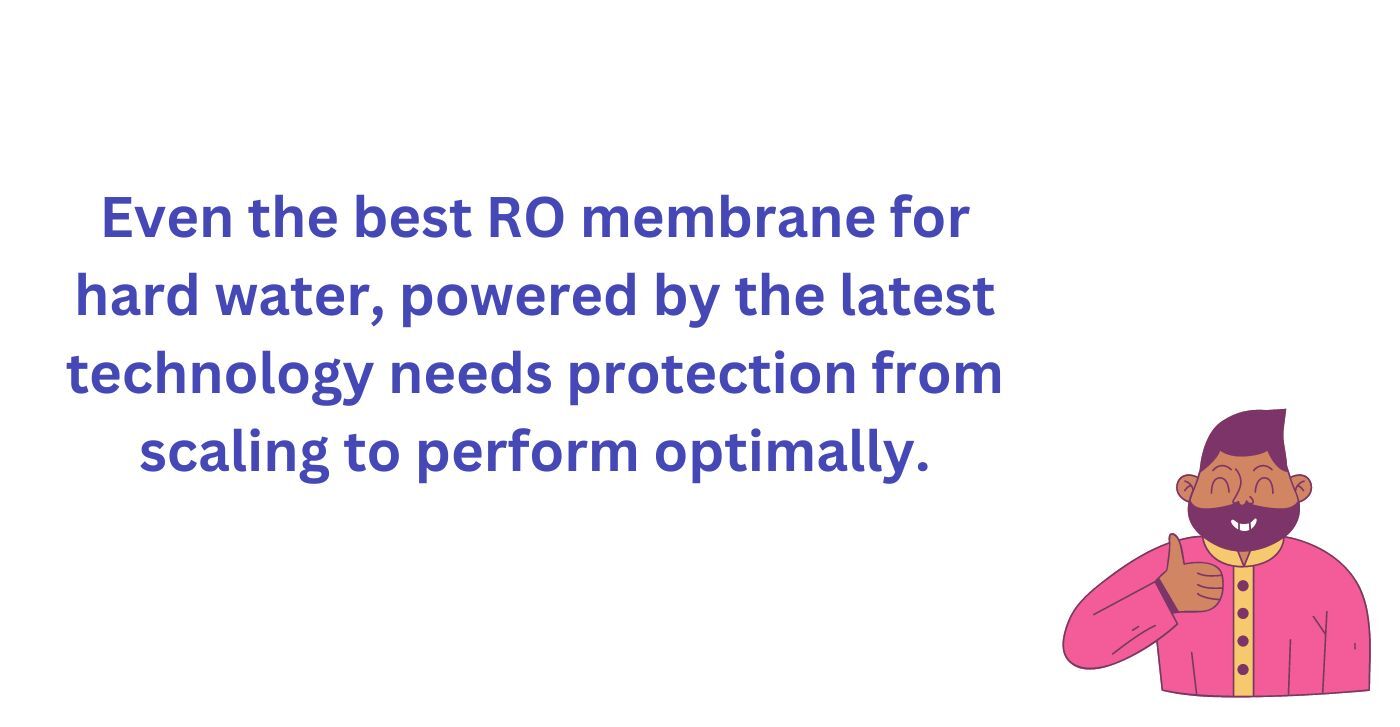
In severe cases, the safety of the membrane may be compromised leading to the leaching of harmful toxins into the water, and unsafe water for your consumption. So even the best RO membrane for hard water powered by the latest technology needs protection from scaling to perform optimally.
How can you prevent the ill effects of hard water on your purifier?
An RO for hard water is your best ally to get pure, safe drinking water irrespective of the source. But your hard water RO system needs some protection too.
1.Test your water source
The first step is to get your source water tested, before installation. Knowing what type of minerals are present in the water can help increase the life of your RO. For e.g., if the iron content is high in your source water, you can consider installing an iron filtration system along with your RO filter. This reduces the load on the membrane and the RO parts, leading to its longevity and you can be assured of pure, safe drinking water.
2. Keep monitoring your water quality
After installation, it is important that you keep monitoring the water to make sure that scaling does not pose a problem in the long run. Replacing the membranes frequently can be a costly affair and if you are facing this issue, it may be time to rethink your RO system or find a solution for water hardness.
3. Pre-treatment is the way to go
Pretreatment of water is an effective solution to deal with hard water-related issues. Pretreatment basically removes the compounds that cause damage to the RO membrane. So, an iron filtration system helps deal with excess iron in the water, carbon filters deal with high amounts of chlorine present in water. Ion exchange filtration is also a helpful method to deal with hard water.
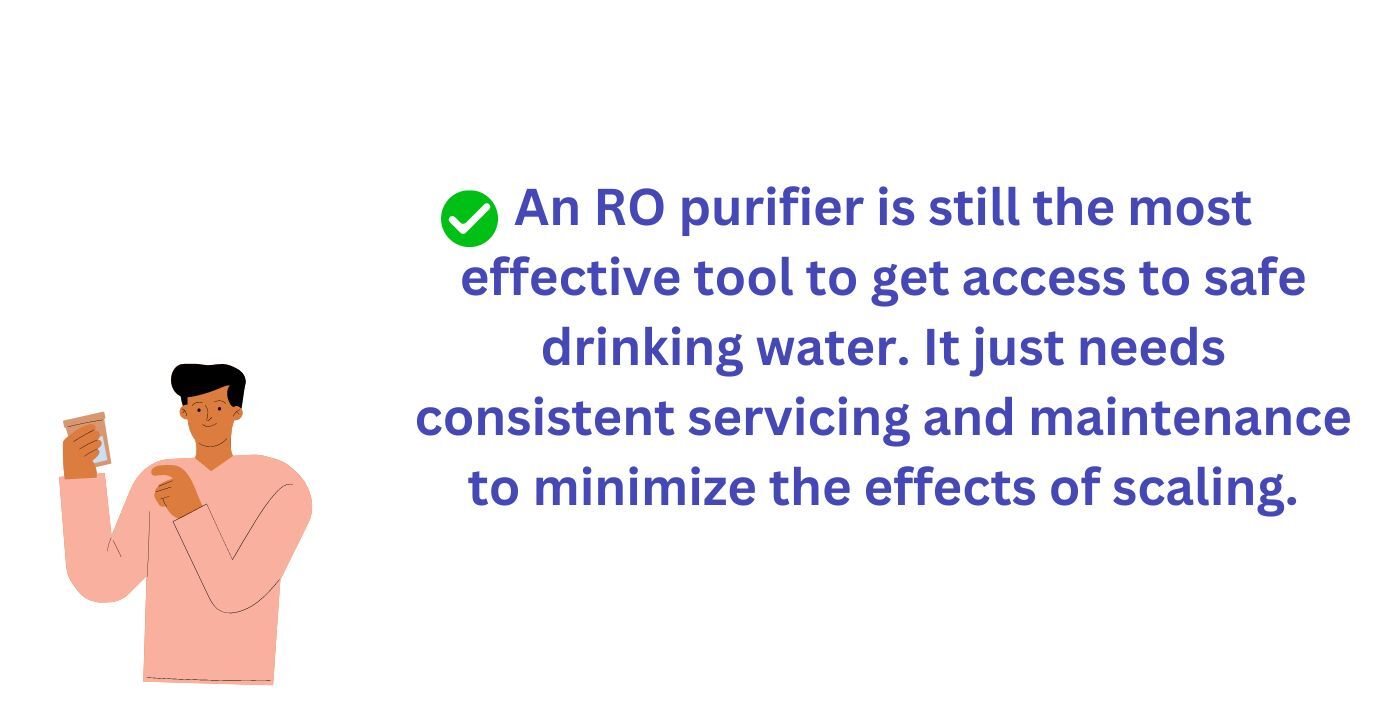
In this system, water is passed through a cylinder that contains sodium-saturated resin beads. This causes the ions that contribute to the hardness, to attach themselves to the resins.
Another major drawback of hard water is that the minerals which clog the membrane and damage the parts, put pressure on the system, causing it to waste large quantities of rejected water and increase the electricity bills. Solutions to deal with hard water and scaling are something that the purifier companies also need to deal with to contribute towards sustainability in the long run.
Get 7 Days Risk Free Trial
Conclusion
A RO water purifier, irrespective of its drawbacks, is still the most effective tool to get access to safe drinking water. A little caution from your end before installation, by checking the source water, will help you tackle the root causes of hard water. This will reduce the load on the membrane and the RO parts, allowing it to function to its full potential, thereby increasing the life of the machine.
Consistent servicing and maintenance on your part will minimize the effects of scaling and other hard water-related problems, allowing you to enjoy worry-free access to pure, sweet-tasting water, at the press of a button.

